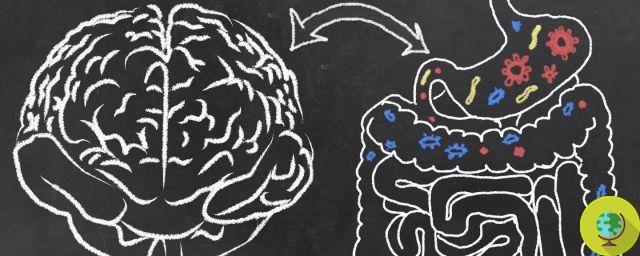
Intestine, second brain. These two organs are closely connected to each other and the intestine, beyond digestion, has essential functions for the well-being of the whole body.
Don't store avocado like this: it's dangerous
In recent years, continuing to study the mechanisms by which our body works, we have come to understand that the role of the intestine in the human body is a lot more important than initially thought. Here then is that we hear more and more often about this organ as a second brain.
The brain uses the intestine as a valuable ally to carry out its functions and it is very important to understand that the intestinal well-being (as well as the mental one) also affects the rest of the body. Conversely, a disordered intestine can cause problems even from a distance.
Among other things, that between the brain and intestine there is a close correlation, it is also suggested by the fact that these two organs are very similar in terms of shape. The bridge between the two is the vagus nerve particularly useful for transporting information from the intestine to the brain.
Even the "second brain" is equipped with a nervous system (enteric) consisting of a dense network of neurons that receive and transmit signals and stimuli in reaction to internal sensations and moods but also to external agents. This system is constantly in contact with the central nervous system but at the same time has its own autonomy and is mainly concerned with regulating intestinal functions: digestion, peristalsis, secretions and ph.
We also know (we have all experienced this at least once) how muchemotionality can affect the gastrointestinal system, for example in cases of colitis. And this would always be due to the close connection between the brain and intestines, but the opposite is also assumed, namely that intestinal problems can lead to the development of some forms of anxiety or depression.
The intestinal mucosa is then equipped with a real immune system that, if it works correctly because it is healthy, it is able to defend us from external agents and also warn the rest of the body that there is a danger to face so as to be able to set in motion all the necessary defenses.
Particularly useful for this purpose is also the bacterial flora (microbiota), these are microorganisms of different species that must be in the right balance and proportions between them to ensure well-being to our body, otherwise "bad" bacteria and yeasts take over and cause a whole series of pathologies and disorders to appear gastrointestinal and more.
In recent years, scientific research has realized that the role of the intestinal microbiota it is of fundamental importance for our health because it takes care of several things: it regulates the digestion of food andabsorption essential nutrients, defends against pathogens, produces hormones and is in constant contact with the central nervous system.
HOW TO TAKE CARE OF YOUR INTESTINE
You will therefore have understood how having a fit intestine is of fundamental importance for our health. Here then 5 simple tips to take care of it:
1) EATING WELL
The first fundamental rule is to follow healthy eating and balanced that varies with the changing of the seasons and that is rich in fiber and prebiotic foods (i.e. those that the good bacteria of our intestine feed on). These indigestible substances allow for regular intestinal transit and must be consumed every day through fruit, vegetables, legumes and whole grains. Instead, refined sugars and salt should be limited as much as possible.
2) WATER
Also hydrating well is essential for the well-being of the intestine and beyond. By forgetting to drink, we make the situation inside this organ much more difficult and consequently going to the bathroom will be increasingly difficult until constipation appears.
3) PROBIOTICS
Probiotics (also called probiotics) I'm good bacteria, very useful in cases where, due to the intake of antibiotics, an unregulated diet or the appearance of intestinal problems, there is an imbalance of the intestinal bacterial flora. Their intake allows to restore all the regular functions of the intestine, which is why there are different species and in various formulations in pharmacies and herbalists that should be evaluated case by case.
READ also: Probiotic and prebiotic foods: what they are, benefits and where to find them
4) PHYSICAL ACTIVITY
Physical activity is good for our whole body, including the intestine, both on a physical level, since it improves circulation, metabolism and stimulates regular intestinal motility, both on a mental level since it allows you to unload accumulated tensions and stress.
5) RELAXATION TECHNIQUES
Given that the intestine, connected to the brain, is a place where it is very easy to feel problems and tensions due to emotions and stress, nothing better than to take care of it by resting enough and perhaps using, if you know, relaxation techniques as they can. to be there deep breathing or yoga.
Read also:
- Intestine: 10 tips to take care of it in the summer


























